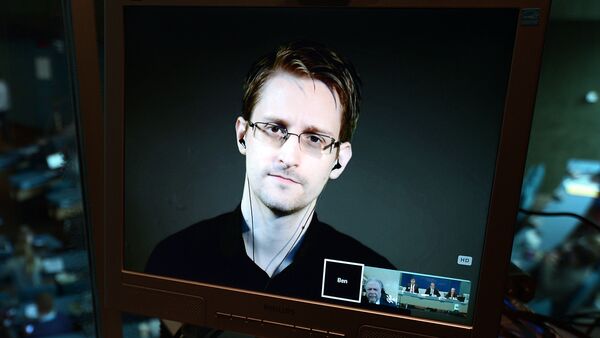Official New Zealand government documents show that a mass surveillance program, which former Prime Minister John Key insisted had been halted, had in fact continued during his time in office, according to an investigation by the New Zealand Herald.
Whistleblower Edward Snowden has accused Key, who was in office from 2008 to 2016, of "stealing" the 2014 general election by falsely claiming that the program had been stopped.
A Lie, a Cover-Up, and a Stolen Election: @nzherald's new evidence shows former PM of New Zealand John Key lied to his country about mass surveillance plans in the final days before the vote — and won. #nzpol https://t.co/NIdGlJwprq
— Edward Snowden (@Snowden) 28 ноября 2017 г.
Shortly before the election, investigative reporter Glenn Greenwald, who examined the files Snowden leaked from the NSA, and Snowden alleged that the New Zealand government was carrying out mass surveillance of its residents.
Snowden warned New Zealanders that "If you live in New Zealand, you are being watched," and accued Key of "not telling the truth about mass surveillance."
Key issued a strong denial of the claims and even released several declassified papers to support his position. He claimed that the Speargun project to tap New Zealand's internet cable had been dropped in March 2013.
''There is not, and never has been, a cable access surveillance program operating in New Zealand," Key said on September 15, prior to the general election on September 23 in which his National Party gained one seat to remain in government.
"There is not, and never has been, mass surveillance of New Zealanders undertaken by the GCSB (Government Communications Security Bureau)," the prime minister added.
Amazing @nzherald investigation that: 1) confirms what I said in my trip to New Zealand: PM John Key lied *repeatedly & knowingly* about his mass domestic spying program; 2) proves Key & GSBC lied about the existence of documents proving their false claims https://t.co/JZbvms76R8
— Glenn Greenwald (@ggreenwald) 28 ноября 2017 г.
However, new documents show that the development of Speargun continued after March 2013, "Apparently because the scheme was 'too broad,'" the Herald reported on Tuesday.
"Instead, they show Speargun wasn't actually stopped until after Key was told in a secret briefing that details were likely to become public because they could be in the trove of secrets taken by NSA whistleblower Edward Snowden."
"Cabinet documents from April 2013 then show Speargun — or Initiative 7418 — had its funding extended through to June the following year," the newspaper wrote.
Writing in The Intercept, Greenwald asserted on the basis of the Snowden files that "at some point in 2012 or early 2013," the GCSB implemented the first phase of the Speargun project.
The second phase of the project, which was conceived in April 2012, involved the insertion of "metadata probes" into "cable access" equipment, which appeared to be a reference to the Southern Cross Cable, New Zealand's only point of telecommunications access. The leaked NSA documents note that the first such metadata probe was scheduled for installation in "mid-2013."



